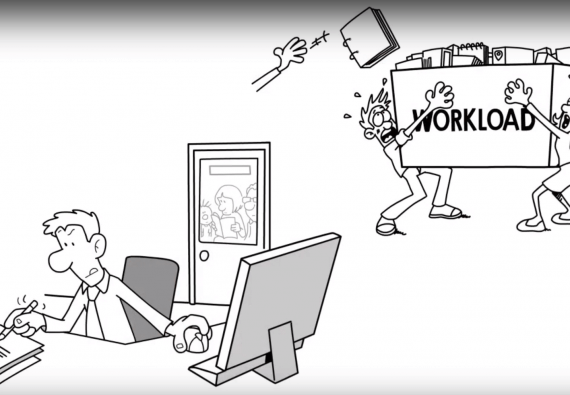Leverage Your Mind To Improve Your Life
Our Team
Rusty Williams
Consulting Hypnotist
Rusty, an ordained minister, is a retired police detective and former paramedic. He learned hypnosis to help him control the physical pain he was experiencing from a tumor in his spinal cord. He became a certified hypnotist to help others reduce their discomfort - both physical and emotional.
Rusty holds a both a Bachelor's and Master's degree in Divinity, and a Doctorate degree in Ministry.
Elissa Williams
Owner, CEO of The Barefoot Ministries and New Jersey Hypnosis Training
Elissa has 37 years of education as a high school business teacher and holds both a Bachelor's and Master's degrees in Education. In addition to teaching high school, Elissa is an adjunct professor and has trained teachers in graduate courses on teaching techniques and theories.
When Elissa has time away from the businesses she started, she can be found painting and enjoying time with her pets.
Why Hypnosis?
Relieve Anxiousness And Stress
There are tens of thousands of peer-reviewed journal articles published on the efficacy of hypnosis in relieving anxiousness, stress, and fears. By learning to focus on calming and peaceful things in their lives, people have taken back control of their feelings and emotions through guided visualization and mindfulness techniques that are both easy and enjoyable to master.
Control Physical Pain
One of the earliest uses of hypnosis was to control physical pain and discomfort. And our modern medical journals are filled with research that demonstrates the value of hypnosis in managing and controlling both acute (sudden) and chronic pain. In fact, hypnosis is now being used in burn centers to help patients reduce pain from major burns and is being suggested as an adjunct to narcotics by major medical schools and hospitals.
Reduce Cancer Treatment Side Effects
In addition to relieving physical pain and discomfort, hypnosis is proven to be effective in controlling other unpleasant feelings and sensations. In research conducted here in the U.S. and in Europe, hypnosis and mindfulness exercises were shown to improve the quality of lives of patients undergoing chemotherapy; it helped reduce nausea and vomiting after treatments as well as anticipatory nausea and vomiting before treatment.
Substance Relapse Prevention
Mindfulness techniques and guided imagery are now being incorporated into treatment programs around the world. In 2009, the Journal of Substance Abuse reported on the efficacy of mindfulness-based relapse prevention as an aftercare approach for individuals who recently completed treatment for substance use. People can experience healthy alternatives to feel worthy in society through hypnosis and mindfulness exercises.
Enhance Athletic Or Academic/Cognitive Performance
Athletes from all levels and fields have been using hypnosis to enhance their performance for decades, and almost every country’s Olympic teams have been using mindfulness techniques to increase success since the 1980’s. Mindfulness meditation and hypnosis have show to be equally effective in academic performance by reducing pre-test anxiety and stress, and relaxation and focus during study periods.
Medical Universities Teaching Practical Hypnosis:
Origins of Clinical Hypnosis in the U.S
Hypnosis offers people the ability to achieve changes they want in their lives. Whether those desired changes are relief from feelings of anxiousness and stress, relief and control over physical pain, or freedom from nicotine, hypnosis has been proven to work. Peer-reviewed research and thousands of journal articles attest to value of hypnosis in helping people live the lives they desire.
Medical schools such as Stanford (“Hypnosis allows patients to focus internally on a specific problem and its resolution, while maintaining a comfortable state of physical relaxation”), Harvard (“Hypnosis is an approved treatment for the relief of pain and anxiety”), and Johns Hopkins (“Hypnosis is effective in many situations, including: reducing pain, quitting smoking, reducing anxiety, treating depression, overcoming fears or phobia”) all use and teach hypnotic techniques to their patients.
These are just a few of the major universities and medical schools that have conducted research and studies on hypnosis, and the results are amazing. Research into hypnosis by major medical schools began with the Mayo Clinic. While most of us recognize the mayo Clinic as a prestigious medical and research organization, what you probably don’t know is how the Mayo Clinic got this reputation. It was hypnosis!
In the early twentieth century, the greatest risk from surgery wasn’t infection, it was the operation itself; specifically, anesthesia. People were dying from the amount of anesthesia given. A nurse anesthetist who worked exclusively with two surgeons, brothers with the last name of Mayo, used hypnosis before each procedure. The death-rate from these surgeries was zero; there were 14,000 surgeries, and there were no deaths – not one. That’s right, in a time when a significantly large percentage of people were dying from surgical complications in this country, the Mayo Brothers (as they became known at the time) had a mortality rate of zero.
By hypnotizing their patients before the procedure, less anesthesia was needed during surgery, and because less anesthesia was used, these patients had less complications – and every one of them recovered. The reputation of the Mayo Brothers soared and their success became the benchmark of all other hospitals in the country. And that reputation led to the Mayo Clinic as we know it today
How might your DNA memory be influencing your current life?
For many people, the term hypnosis is linked to past life regression; when they think of hypnosis, they believe its only use is for past life regression. Past life regression is a process where a person is “regressed” into the past — a time before their current life began — and memories are revealed from whatever time, and life, they are regressed to. There are people who have a problem with this, and have an even bigger problem when they learn an ordained Christian minister offers this technique to his clients.
Since I only practice techniques and offer modalities that have been proven to be effective, as published in peer-reviewed journals, more than one of you may be wondering why I offer past life regression to my clients. The answer isn’t in trying to prove, or disprove, any forms or previous lives or reincarnation; instead, it is grounded in scientific research that has been ongoing since the 1990’s.
The research I’m referring to is linked to studies conducted on DNA memory. Since the 1990’s there has been ongoing research demonstrating DNA has memory. And that memory is passed on from generation to generation. Simply put, there is memory that is passed down to descendants, and that memory is stored in our DNA. Scientists have known for many decades that our cells, every one of the trillions of cells that make up our bodies, pass down memory to future cells; for the past couple of decades scientists are gaining a better understanding of how memory is passed down through our DNA.
If you’re uncomfortable with the notion of past lives, you can instead think of this type of hypnotic session as, “unlocking ancestral memory.”
This isn’t the forum to debate reincarnation or even any type of possible afterlife, eternal or otherwise. It is an opportunity, however, to explain why I offer past life regression sessions to my clients. Regardless of the beliefs of the client, research has shown that those who undergo past life regression therapy benefit from the process. Whether their memories are true or their imaginations made them up, they benefit either way.










